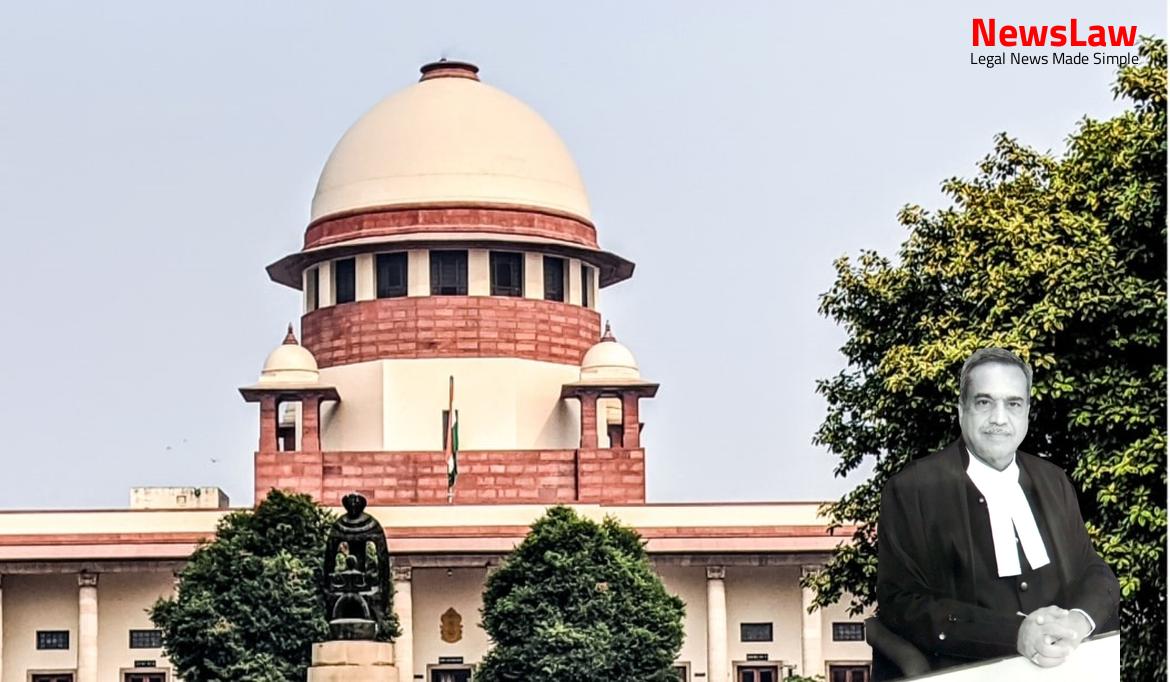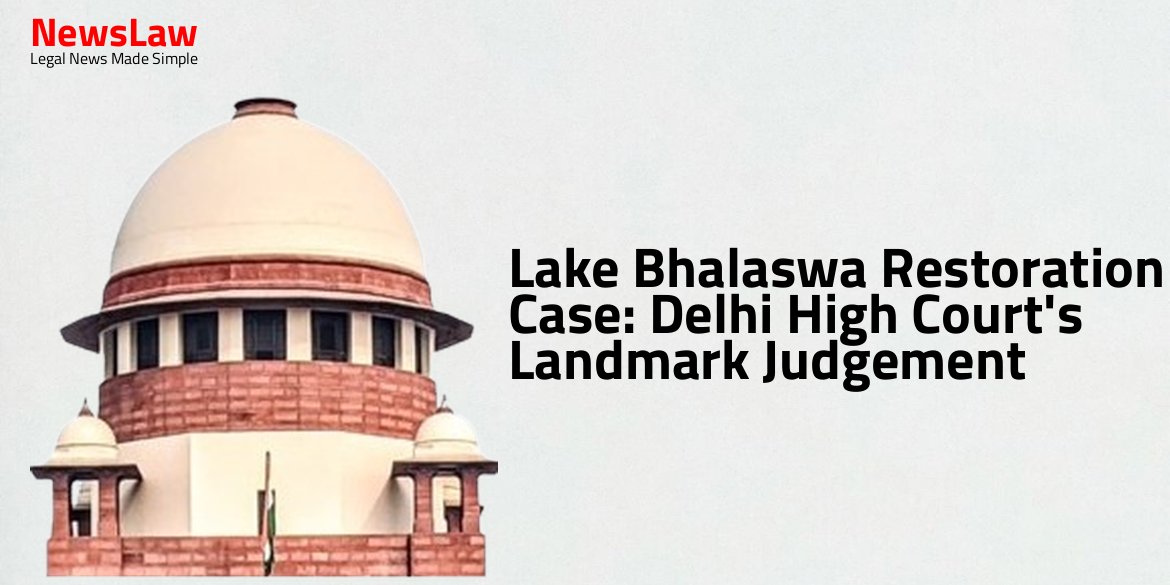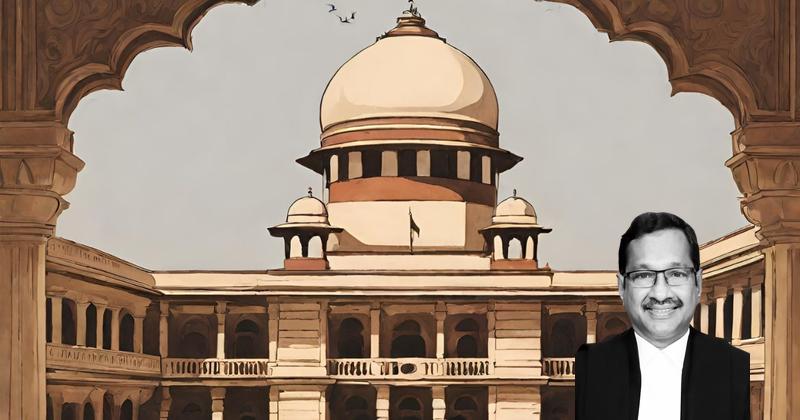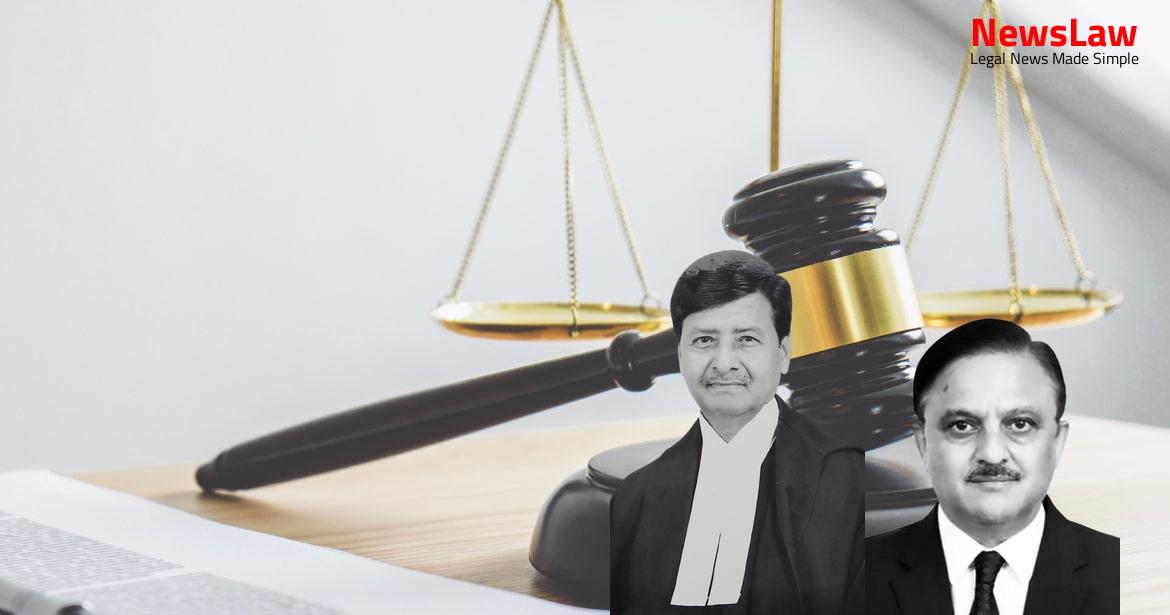Explore the detailed legal analysis conducted by the court in a recent judgment regarding a land dispute refund case. The focus is on the court’s examination of contractual integrity, state instrumentalities, and fair treatment of private parties. Stay tuned to unravel the complexities of this intriguing legal case.
Facts
- Unitech called upon APIIC to execute Clause 3 of the LoA, which involved payment of Rs 140 crores in four tranches.
- Clause 12 of the LoA dealt with the forfeiture of Earnest Money Deposit in case of default.
- Unitech paid a total of Rs 165 crores towards various payments related to the project.
- A Development Agreement was signed between APIIC, Unitech, and Nacre Gardens Hyderabad Limited in August 2008.
- Unitech sought a refund of earnest money deposit in April 2015.
- A writ petition was filed by Unitech in the High Court of Telangana seeking a refund of Rs 165 crores with interest from APIIC.
- Unitech filed proceedings before the Supreme Court in May 2017 but were directed to move the High Court under Article 226.
- The Development Agreement between APIIC and Unitech contained provisions regarding land transfer and encumbrances.
- Unitech requested refunds from APIIC and TSIIC in October 2015 citing various losses and costs incurred.
- A termination clause due to political force majeure events was present in the Development Agreement.
- Unitech requested APIIC to clarify the land title dispute in March 2012.
- APIIC issued a show cause notice to Unitech in April 2011 to commence work on the project land.
- APIIC issued a notice to show cause to Unitech in April 2011 to commence work on the project land.
- The interest must be computed from the date on which each of the installments were paid.
- The LoA was issued on 28 November 2007 based on the judgment in favor of the Government of Andhra Pradesh dated 23 April 2007.
- The State of Andhra Pradesh through Principal Secretary v. Pratap Karan decision upheld the High Court judgment, directing a refund to Unitech with interest from 14 October 2015.
- TSIIC deposited an amount before the Court as per the interim order, with a portion towards principal and interest.
- Reorganization Act specifies the assets, rights, and liabilities apportionment between successor states.
- Central Government is empowered to issue directions on dividing interest and shares between states.
- Population ratio of 58.32:41.68 between Andhra Pradesh and Telangana for apportionment.
- TSIIC argued for division of assets and liabilities post-reorganization; High Court ordered TSIIC to refund the amount.
- Division Bench directed a refund of Rs 165 crores principal sum with interest from 14 October 2015 at SBI-PLR.
- The Single Judge decision aligns with Court precedents and directs a refund of consideration with interest from payment dates.
- TSIIC to deposit 42% of the principal sum, as per the High Court order.
- Unitech made payments amid pending litigation, but sought a refund after the outcome was confirmed by the Court on 14 October 2015.
Also Read: Electoral Malpractices in Mayor Election
Arguments
- TSIIC argues that the liability to refund the principal sum together with interest to Unitech has to be apportioned between TSIIC and APIIC in terms of the provisions contained in the Andhra Pradesh Reorganization Act 2014.
- State of Telangana and TSIIC acknowledged Unitech’s entitlement to seek a refund and the availability of land for the project.
- The State of Telangana did not dispute Unitech’s right to a refund or the availability of land for the project.
- State of Telangana raised objections regarding the validity of the unregistered Development Agreement, compliance with LoA terms, and the maintainability of a writ petition due to an arbitration agreement.
- State of Telangana also raised the issue of liability sharing between Andhra Pradesh and Telangana.
Also Read: Balancing Power and Transparency: Electoral Bonds Struck Down, Disclosure Mandated
Analysis
- TSIIC failed to fulfill its contractual obligation to refund Unitech the principal and interest on the consideration paid over a decade ago.
- The Division Bench directed that interest should be computed from 14 October 2015, despite the contractual definition of compensatory payment.
- Article 17 in the contract stipulates force majeure events, listing specific scenarios that could impact the project.
- The Development Agreement between APIIC and Unitech contained representations regarding the transfer and delivery of the project site.
- The Stamp Act is meant to secure revenue for the state and should not be used as a technicality against Unitech’s refund claim.
- Unitech requested a refund of compensatory payment after this Court’s decision revealed the Government of Andhra Pradesh’s lack of title to the land.
- Unitech complied with payment obligations, including the total purchase price, earnest money deposit, and development expenses.
- The Single Judge and Division Bench correctly determined Unitech’s entitlement to a refund based on contract breach.
- The Division Bench erred in restricting Unitech’s right to claim a refund from the dates of respective payments.
- Unitech’s liability to APIIC, as per the Development Agreement, was linked to payment dates, not the outcome of pending litigations.
- The judgment highlights the importance of contractual integrity and fair dealings even in matters involving state instrumentalities.
- APIIC, as an instrumentality of the erstwhile Government of Andhra Pradesh, invited bids for a public project.
- The State and its instrumentalities are duty bound to act fairly under Article 14 of the Constitution.
- Investors responding to representations made by the State are entitled to assert that the representations must be fulfilled and enforce compliance with contractually assumed duties.
- The Court held that contractually stipulated interest rates, if found to be penal, excessive, or in terrorem, can be reduced to a reasonable rate of compensation.
- The State and its instrumentalities do not shed their obligation to act fairly in their dealings with private parties in the realm of contract.
- Claim to compensatory payment cannot be defeated based solely on payment of stamp duty.
Also Read: Recall of Resolution Plan Approval: Legal Analysis
Decision
- The assessment to stamp duty and formalities for registration must be completed within one month.
- Unitech shall be entitled to a refund of Rs.165 crores along with interest, starting from the respective dates of payment.
- Amount deposited in the Registry of the Court shall be disbursed to Unitech with accrued interest.
- TSIIC must refund the balance due under the judgment within two months from receipt of a certified copy.
- TSIIC can pursue remedies for apportionment with APIIC as per law, but no opinion is given on the claim’s merits.
- The appeals filed by the State of Telangana and TSIIC are disposed of based on the judgment.
- Pending applications will be disposed of accordingly.
- Appropriate stamp duty and registration charges will be paid by TSIIC and deducted from the refund due to Unitech.
- TSIIC must pay stamp duty, penalty, and registration charges within two weeks of determination and adjust it against the refund to Unitech.
- The Development Agreement should be impounded and presented for assessment of stamp duty and registration.
Case Title: UNITECH LIMIED Vs. TELANGANA STATE INDUSTRIAL INFRASTRUCTURE CORPORATION (TSIIC) (2021 INSC 96)
Case Number: C.A. No.-000317-000317 / 2021



